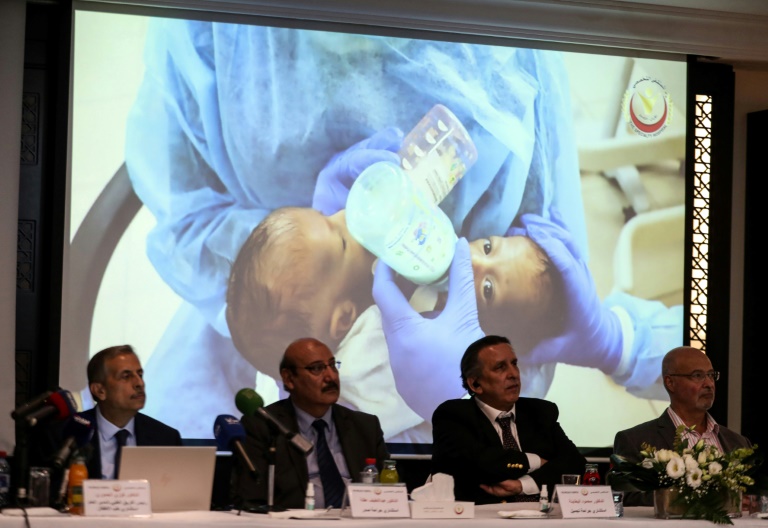A Jordanian hospital has successfully performed the country’s first operation to separate conjoined twins, seven-month-old babies from Yemen, the chief surgeon announced Sunday.
It was “a rare and delicate” procedure which is “a medical success for the whole kingdom”, said the doctor, Fawzi al-Hammouri.
The nearly eight-hour operation which required 25 surgeons and technical advisers was performed in July.
But Amman’s Specialised Hospital delayed any announcement because “after the operation they (the babies) needed intensive care, artificial respiration and intravenous feeding for a long time”, he said.
“We wanted to wait until we were sure 100 percent that things went smoothly.”
Now the twins, Ahmed and Mohammed, are in “excellent health”, Hammouri told AFP.
“The chances of their survival are very great. They have become like any normal child. The danger has disappeared,” he said.
A United Nations medical flight had brought the babies and their parents to Jordan in February.
Born in mid-December in Yemen’s rebel-held capital Sanaa, they were in critical condition.
“When they arrived, they both weighed three kilograms and 700 grams (eight pounds). We waited until they weighed nine kilograms together” before separating them, Hammouri said.
The babies are still in Jordan with their parents but expected to return home in two or three weeks, he added.
Seven years of war between the Huthi rebels and pro-government forces have devastated health services in Yemen.
About 80 percent of the country’s 30 million people, long the Arabian Peninsula’s poorest country, are dependent on aid.
In February 2019, conjoined twins died in Sanaa two weeks after their birth.
Conjoined twins develop when an early embryo only partially separates, to form two individuals who will remain physically connected, the Mayo Clinic says on its website.
Many conjoined twins are stillborn or die shortly after birth, but advances in surgery and technology have improved survival rates.









